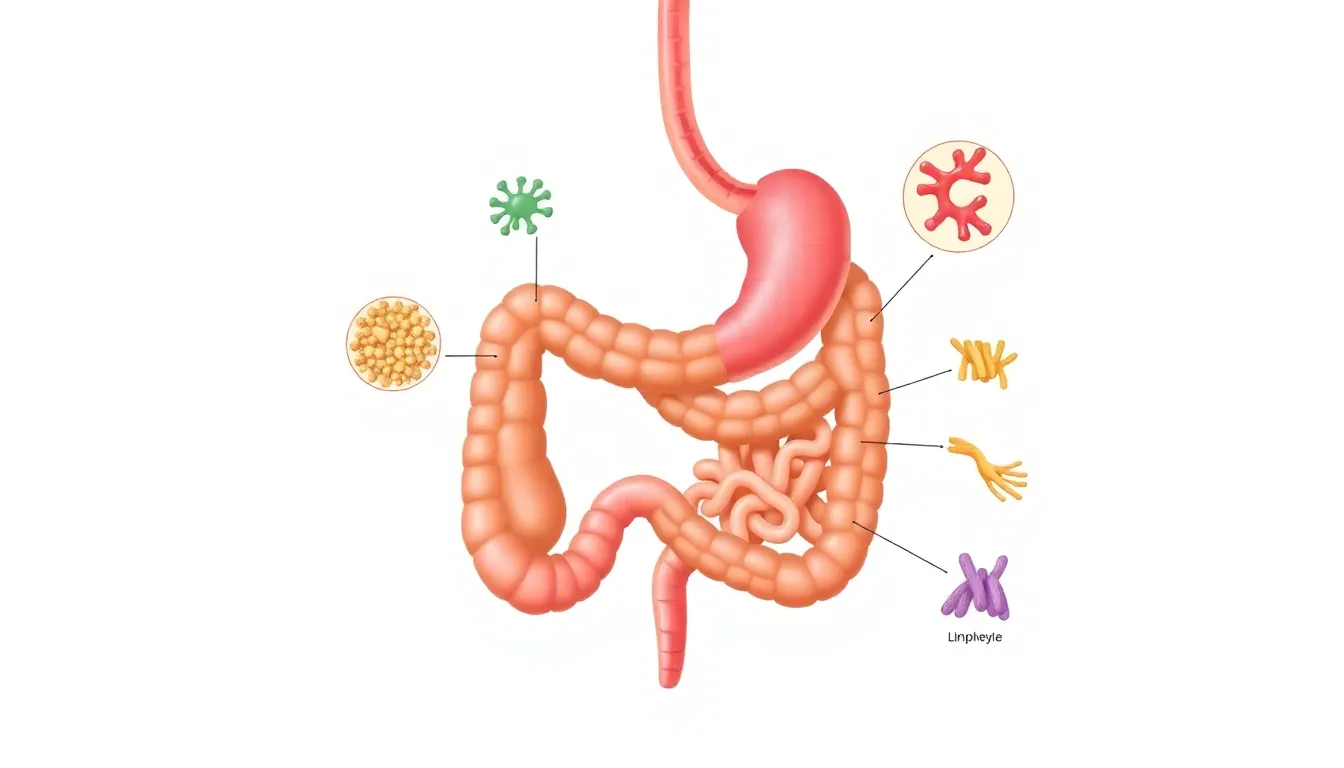Table of Contents
ToggleThe appendix often gets a bad rap as a vestigial organ with little purpose. Many people wonder why it even exists in the human body. However, recent studies suggest that this small pouch, located at the junction of the small and large intestines, might play a more significant role than previously thought.
Far from being a useless remnant of evolution, the appendix may serve as a reservoir for beneficial gut bacteria. This function could be crucial for maintaining a healthy digestive system, especially after illnesses that disrupt gut flora. As science continues to explore the mysteries of human anatomy, understanding the appendix’s role could reshape how we view this often-ignored organ.
What Is Your Appendix For
The appendix serves several potential functions in the human body. It appears to act as a reservoir for beneficial gut bacteria, helping to restore the gut flora after disturbances caused by illnesses, antibiotics, or other factors.
Possible Functions of the Appendix
- Bacterial Reservoir: The appendix may house good bacteria essential for digestion, aiding in the recovery of gut flora following an illness.
- Immune Function: The appendix contributes to the immune system by producing lymphocytes that help the body fight infections.
- Digestive Role: Some research suggests that the appendix might aid in digestion, especially in digesting cellulose from plant materials.
Implications of Appendix Research
Research into the appendix’s functions is ongoing. Studies indicate that its role might not be as diminished as once thought. Understanding the appendix’s functions could change clinical practices regarding appendicitis treatment and management.
Overall, the appendix plays a more significant role in health than previously recognized, warranting further exploration to fully comprehend its effects on digestion and immunity.
Functions of the Appendix

The appendix serves several important functions in the human body, highlighting its significance beyond being a vestigial organ. Its roles encompass aspects of both digestion and immunity.
Digestive Role
The appendix acts as a reservoir for beneficial gut bacteria. This storage aids in repopulating the gut after disruptions, such as illness or antibiotic treatments. Research indicates that the appendix may assist in the breakdown of cellulose from plant materials, supporting overall digestive efficiency. The presence of these bacteria contributes to the fermentation processes within the intestines, enhancing nutrient absorption.
Immune Function
The appendix plays a role in the immune system by producing lymphocytes, crucial for immune responses. These lymphocytes assist in identifying and combating pathogens. Additionally, the appendix contains specialized tissues that may respond to gastrointestinal infections, creating an immune memory. This function helps bolster the body’s defenses against future infections, emphasizing the appendix’s contribution to overall health.
Myths and Misconceptions
The appendix often faces scrutiny due to prevalent myths. Many misconceptions surround its function and significance in the human body.
Common Misunderstandings
Many people assume the appendix has no value, viewing it as a vestigial organ. However, recent research reveals its potential role in gut health and immune response. Some believe removal of the appendix leads to no noticeable health issues, but studies show it can affect gut microbiota recovery after disturbances. Others think the appendix is solely involved in digestion, yet its contributions to the immune system highlight its broader physiological importance.
Cultural Beliefs
Cultural beliefs about the appendix often perpetuate misunderstandings. In some cultures, the appendix is viewed as expendable, leading to a casual approach to appendicitis treatment. Other cultures may hold traditional beliefs that ascribe spiritual or mystical significance to the appendix, further complicating scientific perspectives. These cultural narratives can shape attitudes toward medical interventions and influence patients’ decisions about their health.
Health Implications
The appendix’s function has implications for both health and disease. Understanding these connections helps clarify its role in human health.
Appendicitis
Appendicitis occurs when the appendix becomes inflamed, often due to blockage by stool, foreign bodies, or cancer. Symptoms include abdominal pain, nausea, and fever. If untreated, appendicitis can lead to complications such as perforation or peritonitis, requiring immediate surgical intervention. Surgical removal of the appendix, known as an appendectomy, is a common procedure and usually resolves the condition quickly. Research indicates that while removing the appendix may not cause major long-term issues, it can impact the microbiota’s recovery ability after gastrointestinal disturbances.
Other Related Conditions
Beyond appendicitis, the appendix’s health implications extend to conditions like inflammatory bowel disease (IBD) and gastrointestinal infections. Some studies suggest that maintaining an intact appendix may help mitigate the severity of IBD flare-ups. Additionally, the appendix may play a role in recovering from certain infections by replenishing beneficial bacteria in the gut. Furthermore, conditions such as carcinoid tumors can arise within the appendix, impacting its functionality. Understanding these conditions helps frame the appendix as a crucial organ with more importance than previously understood.
The appendix’s role in human health is proving to be more vital than once believed. As research continues to uncover its functions in gut health and immunity, it’s clear that this small organ deserves more attention. Understanding its contributions can reshape how medical professionals approach appendicitis and related conditions. Instead of viewing the appendix as expendable, recognizing its potential benefits can lead to better health outcomes. As science progresses, the appendix may no longer be seen as a mere vestige but rather as an important player in maintaining overall well-being.






